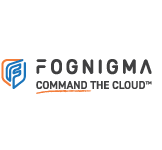The best way to understand the purpose of a firewall in network security is to think about it as a protective layer or guard against your sensitive data. Cyber threats happen every day, and they’re getting more intricate as time goes on. A firewall is the first line of defense in network security and can play a huge role in if your data gets stolen, hacked, or modified by unauthorized users. It doesn’t matter if you’re a small business or managing a big remote team; you’ll want to know the purpose of a firewall and the many benefits it has to offer. Fognigma is here to help keep your digital infrastructure secure. Read on for more!
What Is a Firewall?
What are firewalls in network security? As we’ve mentioned, a firewall is the first protective layer of defense when it comes to network security. It can look like various amount of things, but most commonly, it’s a digital program that your IT administrators can install in your framework. To understand it more, think of a firewall as a digital fortress. It makes sure data is protected and not left a particular network or determines who’s allowed to access it based on established parameters. Firewalls can also act as gatekeepers where, authorizing who can interact with them while also protecting them from hackers, malware, and other threats. They range in complexity and type, from basic packet-filtering systems to more advanced solutions, such as next-generation firewalls (NGFWs) that include intrusion prevention systems (IPS) and advanced threat detection.
Why Are Firewalls Important in Network Security?
Not only do firewalls protect your data, but they can be used for other things as well when it comes to network security. Read down below some other benefits firewalls can offer you.
Keep Sensitive Data Protected
The biggest benefit firewalls bring to organizations or companies is their ability to keep all information safe and away from unauthorized access. This could mean client data and financial records, while for government or military entities, it involves shielding highly classified information.
Making Sure Compliance is Followed
For many industries— military, healthcare, finance, and government—compliance with data security regulations is mandatory. Firewalls such as GDPR, HIPAA, or CMMC are integral to meeting these regulatory requirements.
Bringing Together Businesses Through Continuity
Firewalls can keep your operations running smoothly, which is highly beneficial for remote work environments. This then results in better streamlines and keeping company resources intact no matter where the location is.
Having Productivity Increase
With the operations being more streamlined, the productivity will inevitably go up. Firewalls can filter out malicious content and distractions so employees can focus on their work without interruptions.
Getting Rid of Cyberattacks All Together
Firewalls not only protect data, but they can put a stop to cyberattacks as soon as they occur. Halting these suspicious activities before they even come up on people’s radar is great because it’s one less thing to worry about. Fognigma can offer solutions and services with a layer of obfuscation techniques and end-to-end encryption for highly secure environments.
Military-Grade Security for a Remote Work Environment
Military departments often handle sensitive data on a daily basis. Having this protected shouldn’t be a luxury service. It should be essential. Companies like Fognigma work specifically with military organizations and departments to make sure all your data is locked down and protected. Using things like firewalls can give you dynamic access controls, and anonymous file server access enables mission-critical communications with minimal risk.
Benefits of Having a Solid Firewall
Having a somewhat decent firewall isn’t going to cut it in this day and age. You want to make sure the firewall you have implemented is robust, comprehensive, and ultimately reliable. Having this in place can make things like data transfer, management, or file sharing safe and away from wandering eyes. Also, having a solid firewall can limit access to specific users so that only people you know and are authorized to do so when interacting with particular systems. Overall, having a firewall of any kind is the best bet. Here are some other benefits to think about when getting a robust firewall installed into your infrastructure:
- Access is Secure and Anonymous: Protect users from insider threats by ensuring server anonymity.
- URLs that are Dynamic: Generate expiring URLs for time-sensitive downloads to further enhance security.
- End-to-End Encryption: Ensure only authorized personnel can access sensitive resources.
- Layered Security Protocols: Every interaction is shielded from two-factor authentication to private access points.
Best Practices for Network Security and Firewall Usage
The best thing you can do to implement a good firewall and maintain network security is to be proactive constantly. This can mean keeping up with regular updates, restricting user access, putting encryption processes anywhere and everywhere, and overall monitoring or auditing anything that seems suspicious—identifying and keeping your company or department in the best addressing these vulnerabilities and the safest position against online threats.
Summary
Firewalls are an essential part of keeping your network security safe and protected. They are great for remote work environments as well as protecting data. It doesn’t matter if you’re a small business or a big company, having firewalls in place can safeguard all your classified operations. Also, information as much as possible. If you want more information on this or are interested in getting it installed within your framework, reach out to Fognigma. We have advanced network security services that not only offer firewalls but also other security tools to get your organization to stay ahead of the curve. Stay compliant, secure, and ultimately connected with Fognigma!
